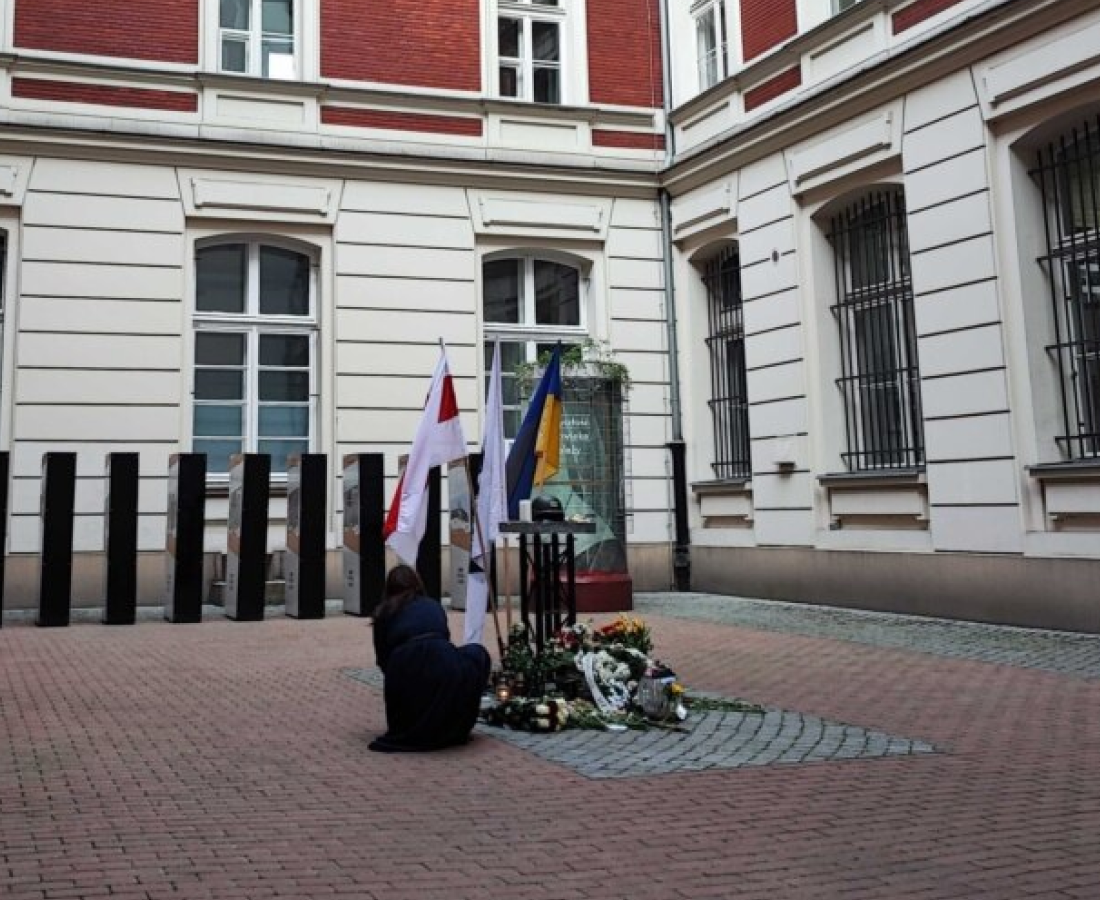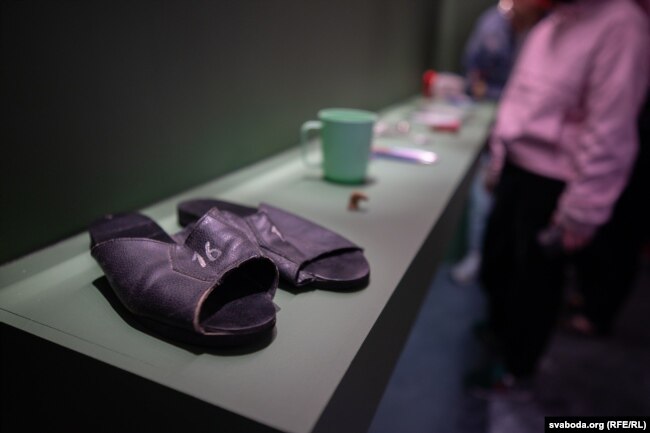
“The Museum of Free Belarus,” active in Warsaw, has accumulated nearly 300 artifacts in its collection over its three years of existence, the museum’s director, Natallia Zadziarkouskaya, said at the opening of the exhibition “Fragments,” dedicated to the anniversary of the institution on July 17, according to Pozirk.
“To remind people of the resilience of Belarusians, who, through sacrifices, repression, and darkness, continue their path toward freedom, is the mission of our museum,” Zadziarkouskaya said.
“Every item, every exhibit, is a separate story of an individual Belarusian who chose the difficult path to freedom,” she added. “It is the story of a Belarusian who, in August 2020, was brutally detained just for refusing to give the password to his mobile phone; it is the story of a Belarusian who was wounded by a rubber bullet in August 2020. That bullet is also on display at this exhibition today. It is the story of an ordinary young man, the artist Raman Bandarenka, who was killed in his own yard.”
Among the exhibits is also a letter from captivity with a self-portrait of the political prisoner and artist Ales Pushkin, who died there in 2023.

The museum was established on the initiative of the Nationals Anti-Crisis Management (NAU). According to NAU leader Pavel Latushka, it has become “an institution with a clear mission and role in society, preserving and displaying what often remains invisible but is extremely important for Belarusians: personal belongings, documents, artistic gestures, materials from the streets, demonstrations, marches, prisons, and everyday life.”
The items in the museum’s collection also testify “to Belarusian heroes—political prisoners and those defending Europe’s security in Ukraine,” he said.
“The museum has become a place where the largest modern movement of Belarusians for freedom is not just recorded—it continues to live. It is a space that unites Belarusians in exile and carries the truth about Belarus to Europe and the world,” added the politician.
The institution’s activities “contradict the widespread but false notion that Belarusians lack the character or will to fight for freedom,” according to the NAU head.
Latushka expressed gratitude for the museum’s support from the Warsaw city authorities, the Netherlands Embassy in Poland, and the well-known Polish philanthropist Mateusz Radziwiłł, a descendant of the historic princely family.
Original article: svaboda.org